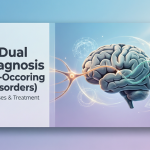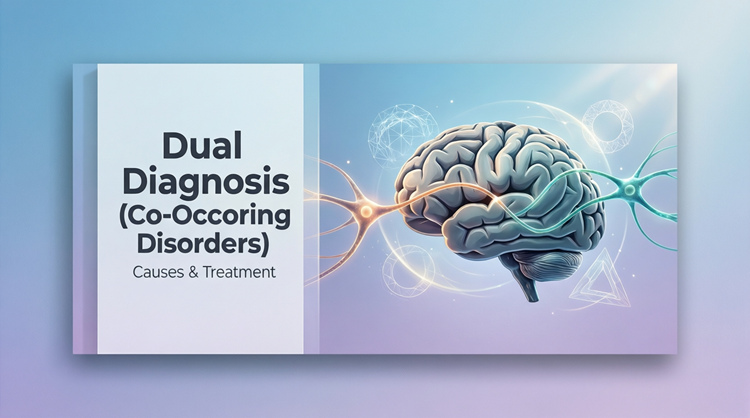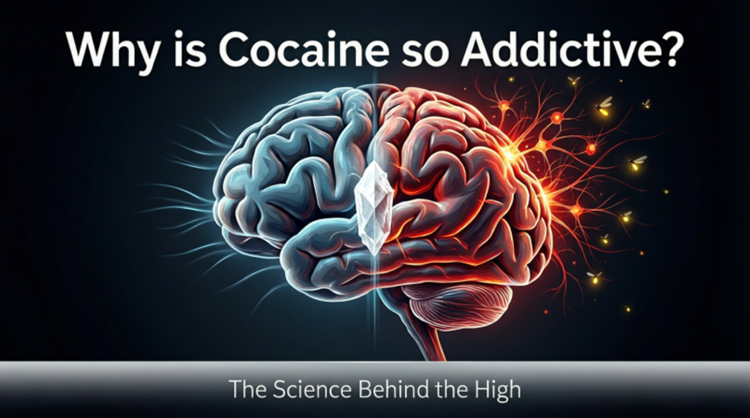Mental health cannot be equated with the lack of a mental illness. It is an essential component of well-being as it is related to the way you think, feel, behave, and interact with other people. Although mental health may be a complicated concept to deal with, it could be simplified by defining its four main types, such as emotional, psychological, cognitive, and social well-being.
Understanding the four areas would assist the individual, family, and care professionals to think much more comprehensively in terms of mental wellness and mental health treatment. In this blog, we will examine all these types, their interaction, and why it is important to pay attention to all of these to lead a happy and balanced life.
1. Emotional Mental Health
Emotional mental health is the capacity to show or regulate our emotional feelings pleasantly and constructively. It is not being happy at all times, but the ability to maintain a balance and hold up in life.
Signs of Good Emotional Health:
- You can deal with stress positively.
- You accept your emotions and you do not hide them.
- You present feelings clearly and constructively.
- When good and bad times occur, you can remain emotionally stable.
When Emotional Health is Compromised:
When emotional well-being is impaired, individuals could be faced with mood swings, irritation, chronic dejection or numbness of emotions. Emotional well-being usually originates or is contaminated by conditions such as depression, anxiety, or trauma-related disorders.
How to Improve Emotional and Mental Health:
- Be mindful and self-introspective.
- Get help when you need it through therapy or counseling.
- Write a journal about your thoughts and feelings.
- Be in good company.
Emotional wellness is included in every treatment plan at DeLand Treatment Solutions, where clients learn to identify emotional triggers and learn emotional resilience tools.
2. Psychological Mental Health
Psychological mental health often provides a crossover with emotional health, though they cover our inner thoughts, attitudes, beliefs, and their influences on our mental condition. It is all about self-recognition, experience in its digestion and having a balanced mindset.
Major Players of Psychological Health:
- Understanding yourself and accepting yourself
- Wholesome coping styles
- A great degree of purposeness or force of self
- Self-talk and cognitive flexibility
The psychological disorders may involve:
- Obsessive Compulsive Disorder (OCD)
- Bipolar Disorder
- Post-Traumatic Stress Disorder (PTSD)
- Personality Disorders and Schizoaffective.
A deplorable mental condition will drive one to be impulsive, delusional or think differently. Such problems are to be diagnosed and cured by specialists.
Increasing Psychological Wellness:
- Take part in cognitive-behavioral therapy (CBT)
- Overcome negative ways of thinking
- Have attainable targets and be thankful when you hit them
- Don’t compromise your sleeping and eating habits
Our evidence-based services offered at DeLand Treatment Solutions, like CBT, DBT, trauma-informed care, and other programs, will help build psychological health and help individuals acquire a sense of clarity and a restful state.
100% Confidential Support is Available 24/7
No matter what you’re going through, you’re not alone. Our dedicated team is here to provide a safe, judgment-free space where you can talk openly and honestly. Whether you need emotional support, resources, or just someone to listen.
We’re here for you—completely confidential and always respectful of your privacy. Call us today!
3. Cognitive Mental Health
Cognitive mental health is associated with the activities of the brain, such as thinking, memory, learning, attention, and decision-making. In a case of excellent cognitive health, a person can process information correctly, concentrate well, and make wise decisions.
Factors That Affect Cognitive Mental Health?
- Ongoing stress or trauma
- Neurological disorders
- Substance abuse
- Brain damage or aging
Indications of Mental Deterioration:
- Difficulty concentrating
- Memory problems
- Coercion or tangled thoughts
- Poor judgment
Some conditions directly associated with cognitive health include Alzheimer’s, ADHD, and mild cognitive impairment (MCI).
How to Increase Cognitive Health:
- Take up brain-strengthening activities (games, riddles, reading)
- Eat well and exercise well
- Respect alcohol and drugs
- Avoid stress and be mindful
The professionals at DeLand Treatment Solutions utilize the application of cognitive tests and treatments to help individuals recover sharpness, memory, and mental stability, especially for patients on the recovery journey to substance abuse or trauma.
Deland Treatment Solutions
Battling with Drug and Alcohol Addition? Remember, you are not alone and we are here to help you!
4. Social Mental Health
Social mental health implies the level of our communication with people and establishing significant relationships. Because we are social beings, our relationships are very important to good mental health.
Signs of Good Social Health:
- Quality relationships, Healthy boundaries in relationships
- Positive social networks
- Proper communication skills
- Negotiations skills
Where Social Health Has Been Interfered With:
- Aloneness or reclusion
- Toxic relationships
- The fear of being judged or being socially anxious
- Codependency or boundary-lessness
Social problems can be common with such conditions as social anxiety disorder, attachment disorders or addiction in cases where relations might be affected and become negative.
Caring for Social Mental Health:
- Spend more time with friends and family members
- Become a member of social or community organizations
- Be an active listener and empathetic person
- Get treatment for poor relationship patterns
In DeLand Treatment Solutions, we approach the individual concerned, but we also pay attention to the family and the community process. We have a combination of group therapies and family counseling that is customized to restore connection and rebuild trust.

Why All Four Types Matter
Mental health is an essential aspect of your general well-being, with each type being crucial. When an area is affected, it is expected that other areas will be affected. As an example, inadequate emotional control may influence your social interaction and mental functioning. Similarly, psychological trauma may cause emotional pain and loneliness.
With the help of knowing the four main elements, including emotional, psychological, cognitive, and social, you will be able to make better decisions to keep your mental health well-balanced.
Seeking help: When to seek help?
When you or a loved one is having problems with emotional control, clear-minded thinking, healthy relationships, and processing traumatic experiences, it is time to make a call.
Neglecting the presentation of mental health problems may result in deterioration of symptoms, poor relationships, substance abuse and physical health issues. The thing is good news is that there is help and a cure.
Find Balance With DeLand Treatment Solutions
We provide a holistic, individual-based treatment of mental health at DeLand Treatment Solutions. Our licensed therapists and skilled clinicians know that all four types of mental health go hand in hand, and we will be able to assist you in the restoration of well-being on every level.

No matter what depression, trauma, addiction, or relationship situation you are dealing with, we have an environment to work towards healing. Whether it is an individual therapy session, a group counseling session, CBT, or educating the family, each of our services is a part of your unique journey.
Get a head start in mental health. Call us at (386) 866-8689 or visit DeLand Treatment Solutions today to discover how we can assist you or your loved one to regain emotional strength, mental clarity, and effective connection.





















